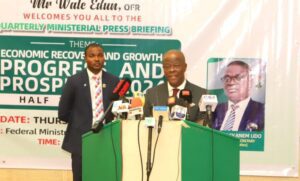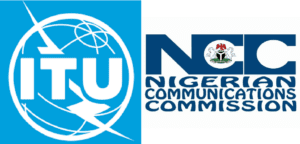
Alleged $2.4bn oil theft: Ministers, heads of MDAs snub Reps summon
…Malami, Zainab Ahmed, others absent
…Probe Committee alleges Minister of Finance paying whistle-blowers in variance from approved percentage
…Alleges office of AGF receiving funds from outside Nigeria without remittances to Federation Account
…Agencies operating TSA accounts with expenditure without recourse to CBN
…2.4bn oil theft alarming — Gbajabiamila
Probe to unravel shady deals of the ongoing investigation by the House of Representatives over alleged illegal sale of 48 million barrels of crude oil valued at $2.4bn suffered setback on Tuesday as concerned officials in question, summoned to answer to the probe snubbed the green chamber.
The House Ad Hoc Committee to ‘Investigate Alleged Loss of Over $2.4 Billion in Revenue from Illegal Sale of 48 Million Barrels of Crude Oil Export in 2015 Including All Crude Oil Exports and Sales by Nigeria from 2014 Till Date’ commenced its three-day investigative hearing on Tuesday.
However, Ministers and other Heads of Ministries, Departments and Agencies (MDAs) of the Federal Government slated to be grilled largely snubbed the Committee, with only the National Intelligence Agency sending a representative.
Also to be grilled were representatives of oil companies and banks.
Those summoned by the Committee include the Minister of Finance, Budget and National Planning, Zainab Ahmed; Minister of Justice and Attorney-General of the Federation, Abubakar Malami (SAN); Secretary to the Government of the Federation, Boss Mustapha, among others.
Also enlisted for probe are the Nigerian National Petroleum Company Limited, the Nigerian Upstream Petroleum Regulatory Commission, the Nigeria Extractive Industries Transparency Initiative, oil and gas companies who operate fields and engage in exports, Office of the Accountant-General of the Federation and the Accountant-General himself, including the Budget Office of the Federation.
Chairman of the committee, Mark Gbillah, in his ruling at the end of the day’s sitting, noted that the Central Bank of Nigeria (CBN) and the Office of the Accountant-General of the Federation had indicted several officials and agencies in their memoranda to the panel.
He disclosed that the Committee is probing into the 48 million barrels of crude oil allegedly sold in China, crude oil exports in general from Nigeria for the period under review and the whistle-blower revelations and recoveries which the Federal Government has publicly declared they had made recoveries from.
“It is unfortunate that the Honourable Minister of Finance is not here; the Attorney-General of the Federation is not here and this is a formal request from the committee that they appear before this committee, because they have received formal invitations to do so, and a lot of what we have to investigate with regards to the whistle-blower policy is saddled with the Ministry of Finance and the (Office of the) Attorney-General of the Federation.
“So, there have been responses that we have received from the Office of the Accountant-General which show that the Honourable Minister of Finance has been approving payments to whistle-blowers in percentages at variance with what the policy says they should be paid.
“There have been allegations of the (Office of the) Attorney-General (of the Federation) being involved also in the receipt of funds from outside the country without these funds being remitted to the Federation Account in line with the provisions of the Constitution.
“There have been allegations that the expenditure of these recoveries has also been done in complete violation of the provisions of the Constitution.”
Gbillah also disclosed some content of the memo from the CBN in which the apex bank accused MDAs of the Federal Government of illegal spending of public funds.
“The CBN made a formal response to this committee indicating that under the TSA (Treasury Single Account) policy, and I quote, ‘of this administration, agencies operate their TSA accounts and make expenditure from these accounts without recourse to the CBN.’
“Now this is something that is alarming to this Committee, for the CBN to declare before us – because we are cognisant of the provisions of the Constitution; that all revenues accruing to the Federation must be paid into the Federation Account.
“So, if there are recoveries being made from whistle-blower revelations, we expect those monies to be paid into the account of the Federation as required by law. If any expenditure is to be made, it should come through the National Assembly. But that does not appear to be the case,” he said.
The chairman summoned Ahmed, Malami, Mustapha and other government officials involved in the implantation of the government’s whistle-blower policy “to appear before the committee, to provide clarification on the operation of this policy and the approvals being made by the Honourable Minister of Finance.”
“With regards to the issue of crude oil, we are expecting the Nigerian National Petroleum Company Limited, the Nigerian Upstream Petroleum Regulatory Commission, the Nigeria Extractive Industries Transparency Initiative, oil and gas companies who operate fields and engage in exports, Office of the Accountant-General of the Federation and the Accountant-General himself, including the Budget Office of the Federation, to be present and provide clarifications to the issues under investigation.
“There are certain individuals as well that we need to investigate. Certain whistle-blower revelations show that from the Paris Club refund, hundreds of millions of dollars were paid into
company accounts without any record of whatever services they provided to the country. These are things that need to be investigated.
“There are allegations that fugitives from their country in India are being harboured in Nigeria and are involved in Nigeria’s crude oil exports in the oil and gas industry, when they are wanted by the anti-graft agencies in their country, with specific regards to certain individuals that we have communicated to and we believe that these individuals appear, in the absence of which the committee would be constrained to exercise its statutory powers under the law to compel appearance before the committee,” he said.
On his part, Speaker of the House of Representatives, Femi Gbajabiamila, while declaring the hearing open, noted that the petroleum sector, particularly crude oil, is still the mainstay of Nigeria’s economy, accounting for 95 per cent of the country’s foreign exchange earnings and 80 per cent annual of budgeted revenue.
Gbajabiamila, who was represented by Ibrahim Isiaka, a member of the House who moved the motion calling for the investigation, also noted that while daily production of crude was put at 1.88 million barrels in 2022, “this figure was never met with production, dropping below 1 million barrels during the year with significant revenue losses to the country; and 1.69 million barrels in year 2023.”
The Speaker lamented that Nigeria’s revenue to Gross Domestic Product ( GDP) ratio is below 5 per cent, which is rated amongst the five lowest countries in the world, “and it is reported that about $700million worth of crude oil is lost to oil theft monthly in Nigeria.
“In January and July 2022 alone, Nigeria lost $10billion to the crime. Available data shows that the country may lose $23billion this year to crude oil theft, with concerns being expressed about the possibility of meeting 2023 proposed production target of 1.69 million barrels per day due to the myriad of issues militating against the attainment of this target, such vandalism, inaccurate reconciliation, insecurity and unreasonable operational cost.
“In the light of dwindling revenue accruing to Nigeria from crude oil sales, it was quite alarming to learn about whistle-blower allegations that over $2.4billion in possible revenue by the country was lost from the sale of 48 million barrels of Nigeria’s crude oil cargoes in China.
“While it is imperative to highlight that these are unverified allegations, the onus is on the House of Representatives, as a responsible House of the Nigerian people, to carry out a thorough investigation to ascertain the veracity or otherwise of these allegations, including an investigation into crude oil exports from Nigeria from 2014 to 2022, to ascertain the accuracy of recorded revenue from sales during this period, the utilisation of this revenue and identify any likely additional losses in revenue to the country,” he said.
He stated that the probe was not a witch-hunt exercise but a constitutional responsibility within the legislative powers of the House as enshrined in Sections 88 and 89 of the 1999 Constitution, Section 2 of the Legislative Houses (Powers and Privileges) Act, 2017, and the Standing Orders of the House of Representatives.
“Corruption continues to be the bane of Nigeria’s development, with Nigeria ranking 150th out of 180 countries in the most recent Transparency International’s Corruption Perceptions Index. While the government, through its anti-graft agencies, continues the onerous fight against corruption, the task remains daunting and requires the cooperation of all Nigerians to curb and eventually eradicate.
“It is the practice globally for individuals with information about the existence of proceeds from illegal or corrupt actions by government officials or private individuals to volunteer such information and receive compensation when recoveries are made as an incentive to others.
“While it is commendable that this administration introduced a whistleblower policy in 2016 and has confirmed recovery of significant proceeds of corruption from its implementation, the policy is without statutory backing and the receipt and expenditure of these proceeds does appear to conform to constitutional provisions and the payment of compensation does not appear to be transparent,” he lamented.
Gbajabiamila pointed out that the recommendation of the committee, after its investigation, would no doubt guide the House in making an informed decision in considering the Whistle-Blower Bill currently before it.
“The legislation, when passed into law, will address a mirage of issues associated with the implementation of the policy as well as take adequate care of the whistle-blowers involved, which is very significant in the success of the policy and law when passed,” he said.



